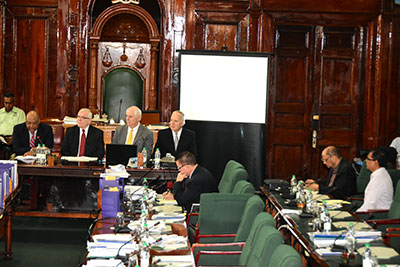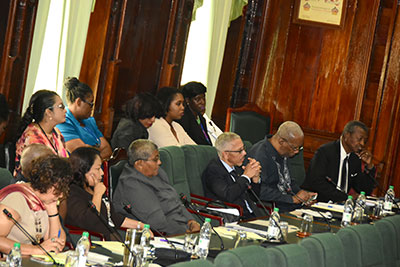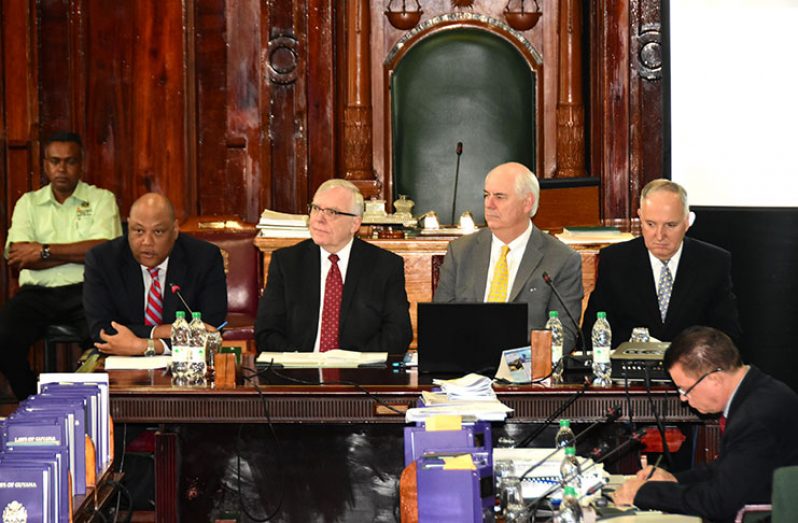GUYANA’s extractive industries sector is expected to have added transparency measures, as the Ministry of Natural Resources streamlines the Extractive Industries Transparency Initiative (EITI).

This was disclosed on Friday by Natural Resources Minister Raphael Trotman during his address to Members of Parliament (MPs) and a visiting team from the Parliamentary Centre, a Canadian not-for-profit non-partisan organization that is dedicated to strengthening parliaments around the world.
He disclosed that the EITI Standard contains a set of requirements that countries need to meet in order to be recognised as firstly an EITI Candidate, and ultimately as one of the 51 EITI countries that are compliant with the body’s requirements.
He said that Cabinet has identified the Ministry of Natural Resources as the lead body responsible for implementing the Guyana-EITI (G-EITI), a multi-stakeholder group consisting of four representatives each from the Government, industry and civil society, and the National Secretariat for the group would be managed by the Natural Resources Ministry

(MNRE).
According to him, responsibilities of the MNRE encompass conceptual and organizational support for the group, to ensure successful implementation of all EITI requirements.
Trotman said the Secretariat, which would be managed by a national coordinator, would serve a public relations’ function, encouraging contact with the EITI International Secretariat in Oslo, Norway, as well as fellow EITI Secretariats.
“It is worthy to note that many of the critical decisions that are to be made — such as which extractive sector Guyana will focus upon in its initial years of reporting — will be made within the tripartite MSG”, Trotman noted.
He lauded the value of the initiative thus far, positing that it has “demonstrated the value of this initiative in pulling sectors and seemingly disparate parts and persons together,” and he lauded the power of collaboration.
The minister said the task ahead is challenging, and hinges on limitations in current data collection systems. He said the goal is the submission of an application for candidacy to the international EITI body before the end of 2016.
“Support to enable the success of the process is being received through capacity-building support from the Carter Center and the EITI Secretariat”, he said as he noted that Trinidad and Tobago has thus far played a supportive role to Guyana’s efforts in establishing an EITI.
Meanwhile, Dr. Oscar Schiappa-Pietra, Extractive Sector Governance Advisor at the Parliamentary Centre, said the involvement of the wider population in managing the sector is important. “We have to look at people’s participation”, he said, while noting that there are many issues at the level of parliament regarding the management of the extractive sector in some jurisdictions.
According to him, this is directly related to the technically complex nature of the sector. He noted that the governance of the sector is a huge problem of most democracies across the world.
This seminar was attended by several parliamentarians as well as Speaker of the National Assembly, Dr. Barton Scotland. The forum focused on several topics, including the importance of good governance of the extractive sector, the role of Parliament in the management of the sector, and Peru’s past experiences in the sector.




.jpg)










